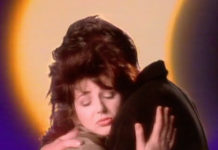It’s easy to move and dance to the rhythm of your favorite song because you can hear it. After all, it would be hard for you to dance to a rhythm you can’t hear. But have you ever thought to ask yourself if insects hear your music too? I mean, dogs and cats hear music. They recognize music. You might even catch your dog dancing if you are lucky.
But insects. Do they hear music? Do they even hear sounds? And if they recognize music, does it attract them or repel them? And oh! Maybe they have favorite songs too!
If you have questions similar to those your answers are here. Read on.
Can Insects Hear Sound?
To answer this question, you have to know what sounds are. Sounds are nothing more than vibrations that pass through the air. So when we say we “hear”, what we are saying is that we have organs that can help us decode the vibrations that are being transmitted through the air. So, as long as you have organs that can decode sound vibrations in the air and give meaning to them, you can “hear.”
Just like you, insects have organs that can pick up these vibrations and interpret them. However, you may not always hear what they hear, because these organs have a frequency range that they can pick and decode.
So, yeah. Insects do hear.
How Do They Hear?
Insects have four different types of organs that help them hear. They are tympanal organs, Johnston’s organs, setae, and libral pilifer.
The tympanal organs exist in pairs on some insects. These organs vibrate when sound waves hit them. These organs function in almost the same way as human eardrums. They comprise a membrane that stretches tightly over the frame of an air cavity.
Every insect that has tympanal organs also has chordotonal organs that can convert the vibrations into nerve impulses. Butterflies, crickets, cicadas, and moths are examples of insects with tympanal organs.
Johnston’s Organ is a group of sensory cells that are located around the base of the antennae of an insect. What they do is to detect the vibrations from the segments of antenna above them. Fruit flies, honey bees (these need special attention when it comes to removal of their nest, they’re protected by law), and mosquitos are the insects that have these organs. But can you repel them using only sounds? Read on to find out.
Setae are little still hairs on the bodies of some insects. These hairs are there to sense vibrations and every insect has a way of reacting to whatever vibration it senses on its setae. Butterflies, crickets, moths, and grasshoppers are examples of insects that possess setae.
Libral pilifer is a hearing organ that is found in hawkmoths. It enables the insects to hear ultrasonic sounds. Libral pilifer senses vibrations in the air at the same frequency as echolocating bats. That is how the insects can escape bats.
So, now you know that insects can hear, the next question is if they can hear music.
Can Insects Tell Music Apart?
It only makes sense that if insects can be attracted or repelled by the sound of music, they should be able to first recognize it. Even if they don’t “hear” it the way we do, music should at least set off some sort of unique reactions in them. Only then can we say that they can tell music apart from other sounds.
To answer this question, I will refer to a study that was carried out by researchers in Malaysia, Thailand, Japan, and Indonesia. According to their research, electronic dance music repelled mosquitoes. The researchers carried out this research on two groups of yellow fever mosquitos, the species of mosquitoes that are responsible for dengue fever and the Zika virus. The researchers played a song by DJ Skrillex nonstop for the first group of mosquitoes. The second group had no music.
After a while, the researchers discovered that the music-entertained mosquitoes mated less. The females among them attacked their hosts less and they fed on blood less often.
Although this research has a lot of prospects, there are a few questions that come to mind. For the study, the researchers used only one genre of music, electronic dance; and they used only one song, “Scary Monsters And Nice Sprites”. What happens if you use pop music or reggae?
As a result, we can’t say conclusively that mosquitoes, or insects, can tell music apart from other sounds.
Does Music Attract Or Repel Them?
Now you may say, “well, those mosquitoes sure did know to not bite or mate when they listened to Skrillex’s songs, so music repels them!” But the head of the Department of Disease Control of London School of Hygiene and Tropical Medicine, Professor James Logan, had something to say. He said, “There certainly is evidence that mosquitoes can hear and that you can manipulate behavior through sound”.
We already discussed how mosquitoes use Johnston’s organ to hear. But Professor James had more to say about entertaining mosquitoes with music with the hope that it repels them. He argued that using music as mosquito repellent is impractical. “There’s no way that you could use this level of noise in a situation to repel mosquitoes,” he said, ” unless you happen to be at a music festival and it was on anyway.”
And when you consider it for a while, you may find how this could be wrongly exploited. One of the ways it could be exploited is that some artists might get undeserved publicity if someone claimed that their songs were mosquito repellent. But in actual fact, mosquitoes do not even acknowledge the sound of that music.
Also, bear in mind that the research was only carried out on a specific species of mosquito. There are many other species of mosquitoes, and of course, thousands of insects.
There are also some arguments that insects are indifferent to music. That music neither attracts nor repels insects. But not much research has been done to prove or disprove this.
Conclusion
So, does music really attract or repel insects, science doesn’t know that yet. But if you are not in the business of entertaining the insects that may or may not want to feed on you, you might as well get rid of them.






